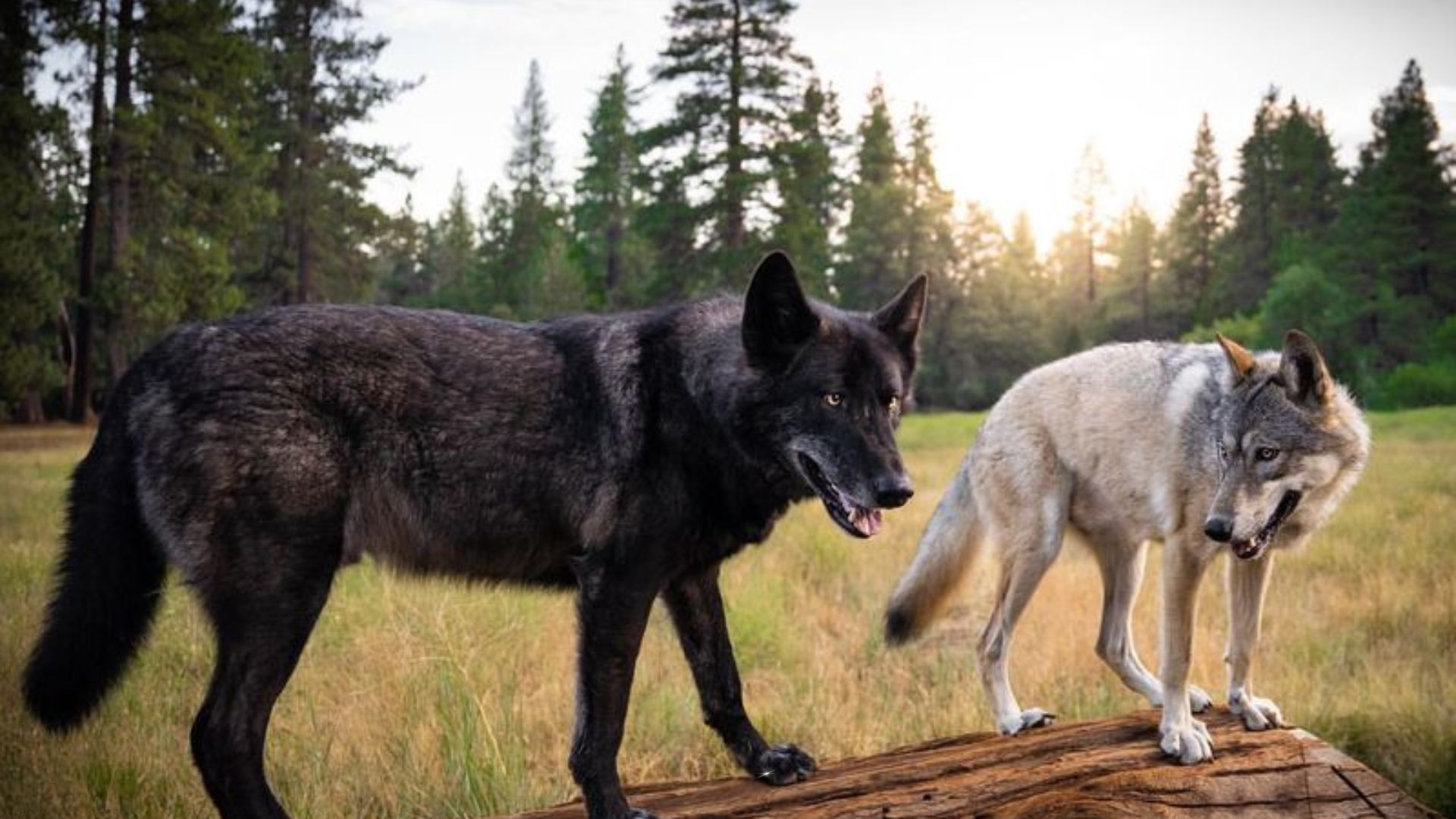Wolfdogs, a hybrid of domestic dogs and wolves, are a fascinating yet controversial choice for pet ownership. They come with unique challenges and responsibilities that potential owners must carefully consider.
While many states in the U.S. allow wolfdog ownership under specific regulations, the debate over their suitability as household pets continues.
Let’s see which states permit wolfdogs as pets, and examine the legal landscape, potential challenges, and the ethical considerations involved.
1. Alaska
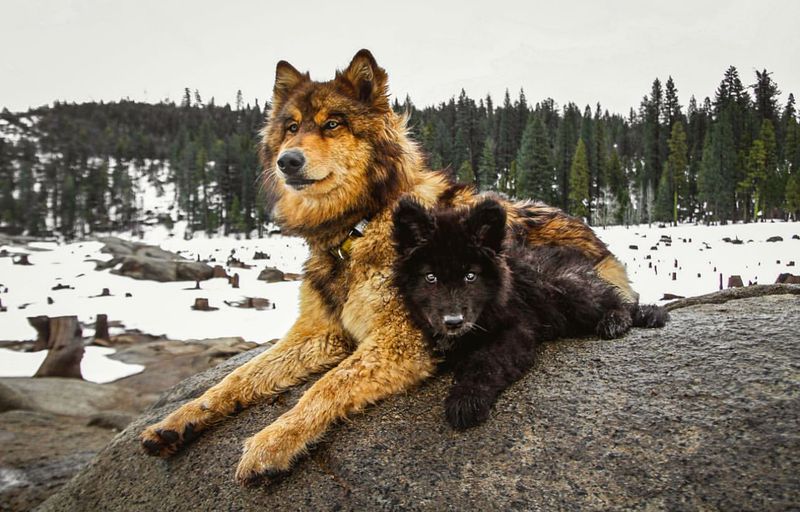
Alaska, known for its breathtaking wilderness and unique wildlife, allows wolfdogs as pets, but with specific restrictions. Owners must adhere to local wildlife regulations, ensuring their wolfdogs are kept safe and secure. This state provides the perfect backdrop for the adventurous nature of wolfdogs.
The cold climate of Alaska is well-suited to wolfdogs’ thick coats, offering them an environment where they can thrive. Potential owners must be prepared for the challenges of owning such a high-maintenance pet, which requires ample space to roam and regular exercise.
Additionally, Alaskan authorities may require permits or registration for wolfdog ownership, emphasizing the need for responsible pet ownership. With the right care and environment, wolfdogs can be a unique and fulfilling pet choice in Alaska.
2. Arizona

Arizona, with its diverse landscapes ranging from deserts to mountains, permits the ownership of wolfdogs under certain conditions. The state’s warm climate may require extra precautions for these animals, particularly regarding hydration and shelter.
Wolfdog owners in Arizona often need to comply with local ordinances that may include permits or containment measures. This ensures the safety and well-being of both the wolfdogs and the community.
While the warm weather poses challenges, it also allows for year-round outdoor activities, providing wolfdogs with the exercise and stimulation they need. Responsible ownership in Arizona involves understanding the unique needs of wolfdogs and adhering to state laws.
3. Arkansas
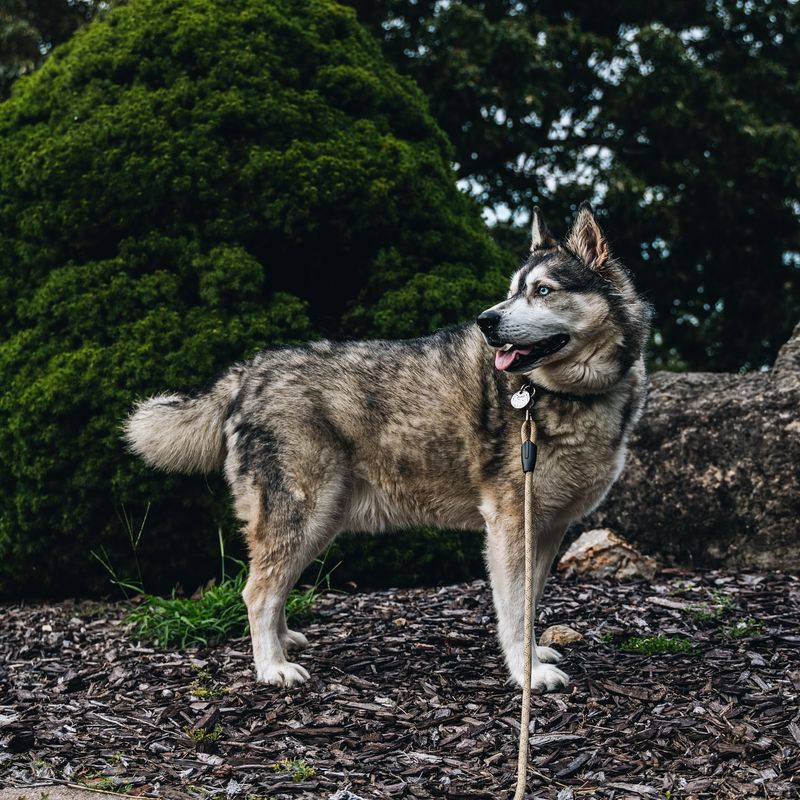
In Arkansas, the ownership of wolfdogs is subject to minimal restrictions compared to other states. This leniency allows more people to experience the joy and challenge of owning these unique animals. However, potential owners must still prepare adequately for the responsibilities involved.
Wolfdogs in Arkansas benefit from the state’s open spaces and natural beauty, which provide ample opportunities for exercise and exploration. Owners should ensure their pets have secure enclosures and regular interaction to prevent boredom and potential behavioral issues.
The state’s moderate climate is generally favorable for wolfdogs, but owners must remain vigilant about their pets’ needs, including diet and socialization. Proper care and commitment are essential for a successful wolfdog ownership experience in Arkansas.
4. California

California, known for its diverse ecosystems and vibrant culture, allows wolfdogs as pets but with strict regulations. Owners must obtain permits and adhere to guidelines that ensure the animals’ welfare and public safety.
The coastal climate of California can be suitable for wolfdogs, provided they have appropriate shelter and care. The state’s varied environments offer enriching experiences for these active animals, from beaches to forests.
Prospective wolfdog owners in California must be prepared to navigate the legal requirements and invest in the necessary training and resources to care for their pets. With the right dedication, wolfdogs can thrive in this dynamic state.
5. Colorado
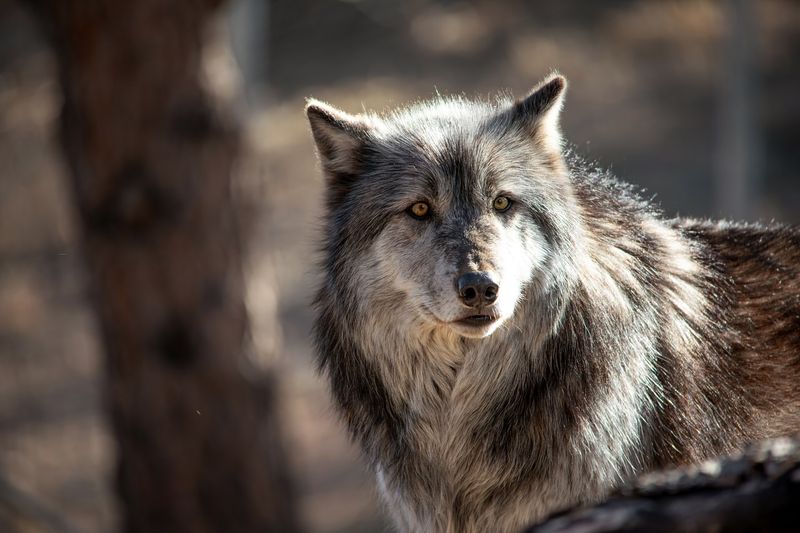
In Colorado, wolfdog ownership is permitted, but regulations vary by county. This mountainous state offers an ideal setting for these animals, with its rugged landscapes and abundant wildlife.
Owners in Colorado must often adhere to containment and safety measures, ensuring that their wolfdogs do not pose a threat to local wildlife or communities. This responsibility is crucial in maintaining the delicate balance of the ecosystem.
The cool climate and outdoor lifestyle of Colorado suit the energetic nature of wolfdogs, providing them with numerous opportunities for adventure and exploration. Responsible ownership involves understanding local laws and committing to the well-being of these unique pets.
6. Florida
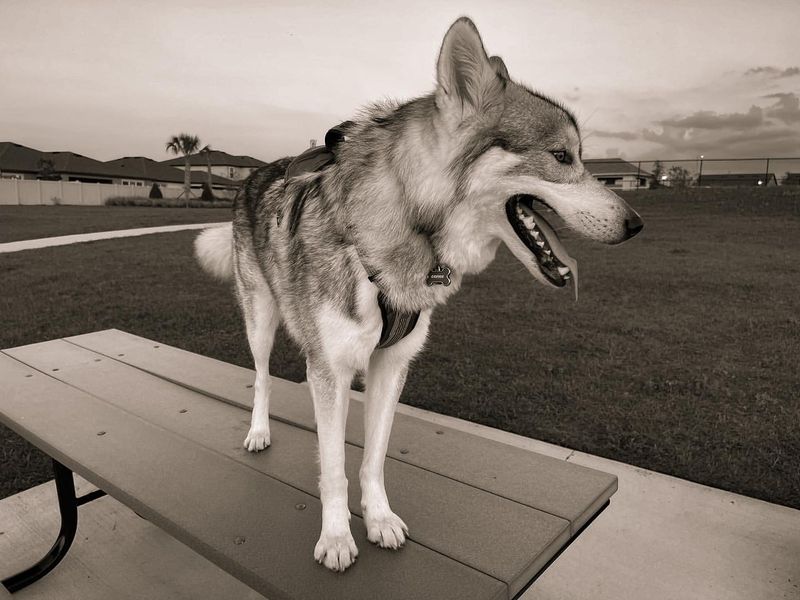
Florida’s lush and humid environment permits the ownership of wolfdogs, subject to specific regulations. The state’s unique climate requires owners to take extra precautions regarding hydration and shelter for their pets.
Potential owners must comply with Florida’s laws, which may include permits and containment measures to ensure the animals’ safety and the community’s peace of mind. Responsible ownership is key to maintaining harmony between wolfdogs and the local environment.
Despite the challenges posed by the humid climate, Florida offers diverse landscapes for wolfdogs to explore, from swamps to beaches. With proper care and attention, wolfdogs can thrive in this vibrant state.
7. Georgia
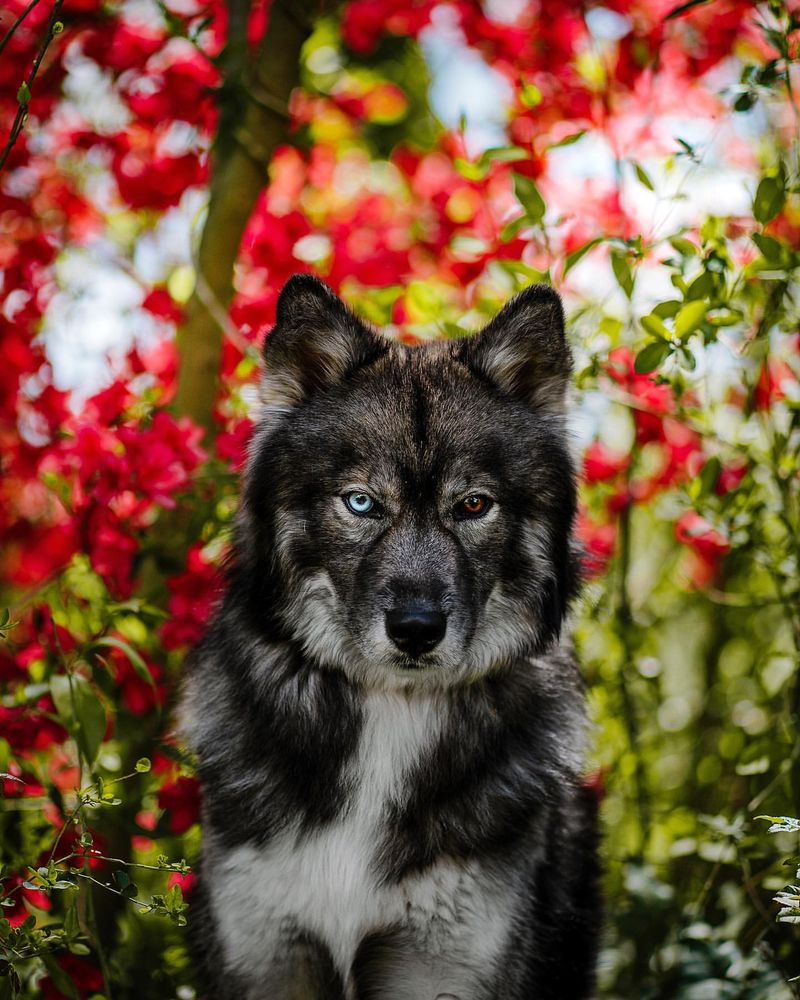
Georgia allows the ownership of wolfdogs under specific conditions. The state’s rich forests and mild climate provide an inviting environment for these animals, offering them plenty of opportunities for exploration and play.
Owners must adhere to local laws and regulations, which may include obtaining permits and ensuring safe enclosures. This responsibility is crucial to prevent any potential conflicts with wildlife or the community.
With its picturesque landscapes and varied seasons, Georgia can be an enriching home for wolfdogs. Prospective owners must be willing to invest time and resources into the training and care of these unique pets.
8. Idaho
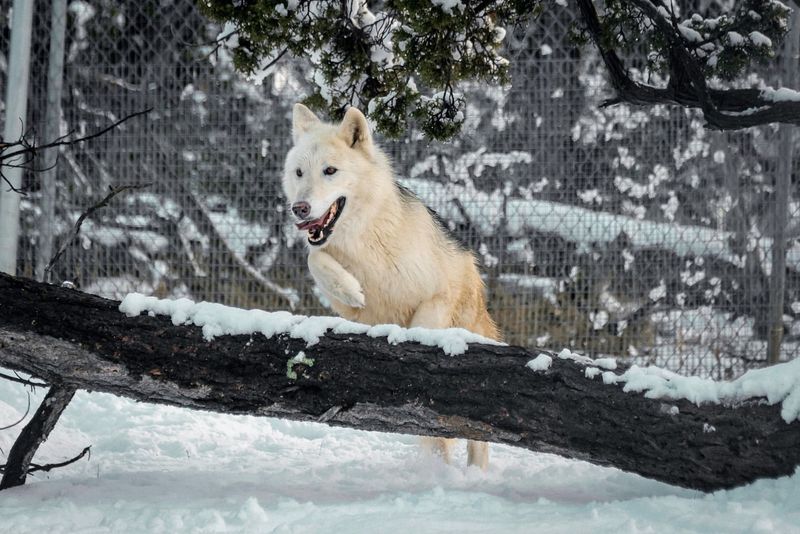
Idaho, with its vast wilderness and rugged terrain, permits wolfdog ownership under certain restrictions. The state’s natural beauty provides a fitting backdrop for these animals, aligning with their instinctual love for exploration.
Owners must comply with Idaho’s regulations, which may involve permits or specific containment measures. This ensures the well-being of both the wolfdogs and the local wildlife, maintaining a balanced coexistence.
The cool climate and mountainous regions of Idaho offer wolfdogs the perfect environment to thrive. Potential owners must be committed to understanding their pets’ unique needs and providing the necessary care and enrichment.
9. Illinois

In Illinois, wolfdog ownership is subject to county-specific regulations, with some areas imposing stricter controls than others. The state’s diverse landscapes, from prairies to forests, offer a variety of environments for these animals to explore.
Owners in Illinois must ensure compliance with local laws, which may require permits or containment measures. This responsibility is essential for maintaining harmony between wolfdogs and the community.
The moderate climate of Illinois is generally favorable for wolfdogs, but owners must be vigilant in meeting their pets’ needs, including exercise and socialization. With the right care and commitment, wolfdogs can thrive in this Midwestern state.
10. Indiana

Indiana allows wolfdog ownership, though regulations vary by county. This state offers a mix of rural and urban settings, giving wolfdogs diverse environments to roam and explore.
Owners must adhere to local laws, which may involve obtaining permits and ensuring secure enclosures for their pets. This responsibility helps maintain public safety and the welfare of the animals.
The moderate climate and agricultural landscapes of Indiana can be suitable for wolfdogs, provided they receive the proper care and attention. Prospective owners must be prepared to invest time and resources into understanding and meeting their pets’ unique needs.
11. Iowa
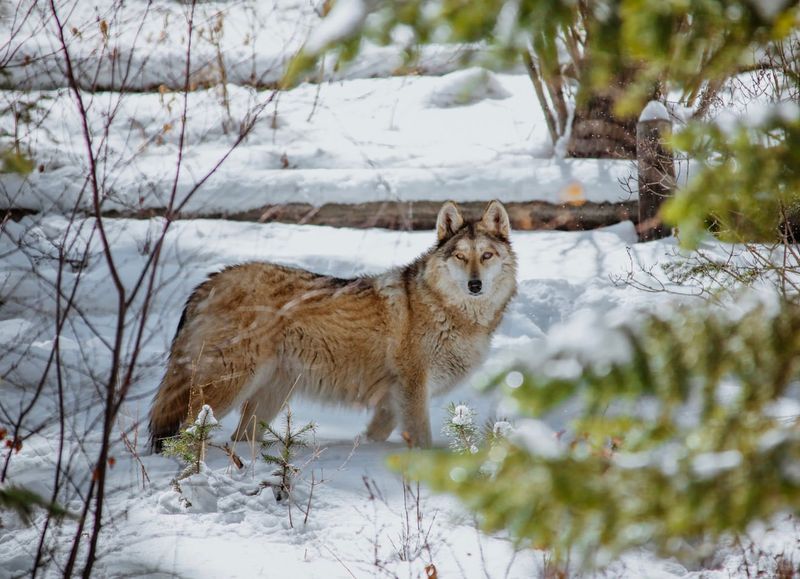
In Iowa, wolfdog ownership is permitted, but specific regulations must be followed. This state’s agricultural landscape provides ample space for these animals to roam, making it an appealing option for prospective owners.
Compliance with local laws, which may include permits or containment measures, is crucial for maintaining the safety of both the community and the wolfdogs. Responsible ownership involves understanding these regulations and ensuring the animals’ well-being.
The mild climate and open fields of Iowa are generally favorable for wolfdogs, offering them opportunities for exploration and exercise. With dedication and care, wolfdogs can be a rewarding pet choice in this state.
12. Kansas

Kansas allows wolfdog ownership, subject to specific regulations. The state’s vast open spaces and agricultural landscapes offer a suitable environment for these animals, providing them with plenty of room to roam.
Owners must adhere to local laws, which may require permits or secure enclosures to ensure the safety of both the wolfdogs and the community. This responsibility is key to fostering a harmonious relationship between the animals and their surroundings.
The moderate climate of Kansas is generally favorable for wolfdogs, but prospective owners must be prepared to meet their pets’ unique needs, including exercise, socialization, and proper care.
13. Kentucky
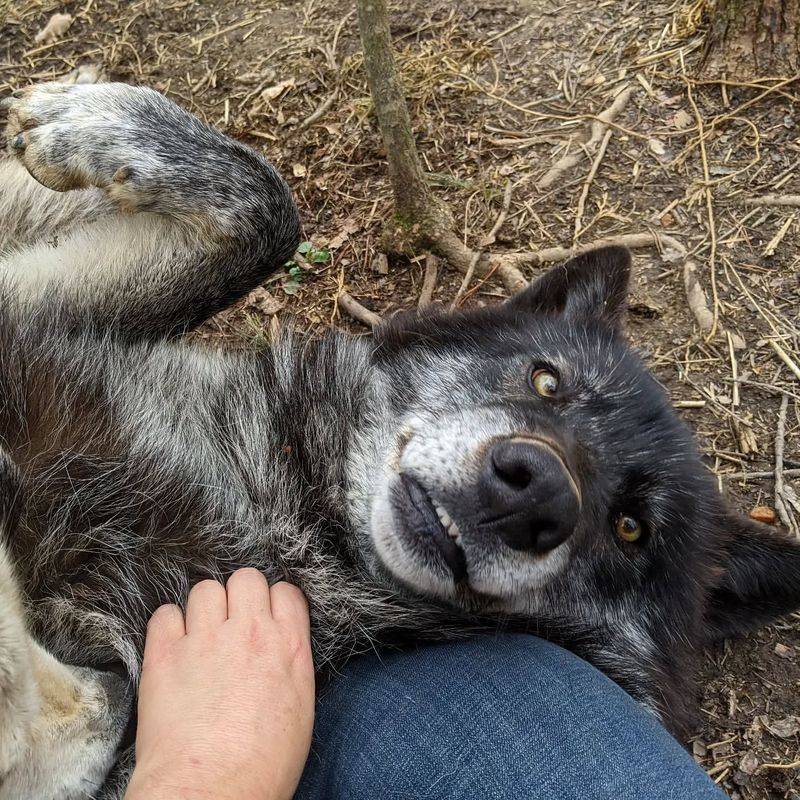
In Kentucky, wolfdog ownership is permitted under specific conditions. The state’s rolling hills and lush landscapes create an inviting environment for these animals, aligning with their instinctual love for exploration.
Local laws may require owners to obtain permits and ensure secure enclosures for their wolfdogs. This responsibility is essential for maintaining the safety of both the community and the animals.
The moderate climate and rural settings of Kentucky offer wolfdogs the perfect environment to thrive, provided they receive the proper care and attention. Prospective owners must be committed to understanding their pets’ unique needs and providing the necessary enrichment.
14. Louisiana
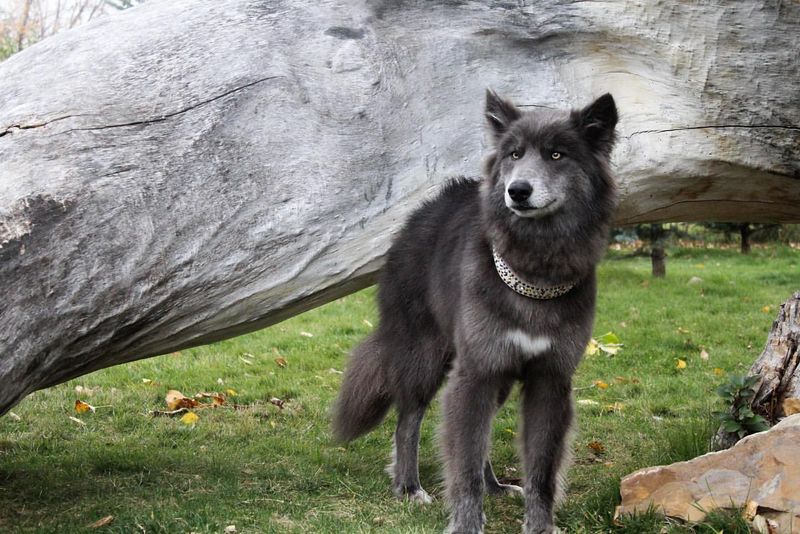
Louisiana, with its distinctive bayous and rich cultural heritage, allows wolfdog ownership under specific regulations. The state’s unique environment offers a fascinating backdrop for these animals, though it also presents certain challenges.
Owners must comply with Louisiana’s laws, which may involve permits or containment measures to ensure the well-being of both the wolfdogs and the community. Responsible ownership is crucial in maintaining harmony between the animals and their surroundings.
The humid climate and lush landscapes of Louisiana require extra precautions regarding hydration and shelter for wolfdogs. With the right care and attention, these unique pets can thrive in this southern state.
15. Maine

Maine permits wolfdog ownership, but with specific restrictions. The state’s rugged landscapes and cold climate provide an ideal setting for these animals, aligning with their natural instincts.
Owners must adhere to local laws, which may include obtaining permits and ensuring secure enclosures. This responsibility is essential for maintaining the safety and well-being of both the wolfdogs and the community.
The wintery environment of Maine offers wolfdogs the perfect conditions to thrive, provided they receive the proper care and attention. Prospective owners must be committed to understanding their pets’ unique needs and providing the necessary enrichment.
16. Maryland

In Maryland, the ownership of wolfdogs is subject to county-specific regulations, with some areas imposing stricter controls than others. The state’s diverse landscapes, from coastal areas to forests, provide a variety of environments for these animals to explore.
Compliance with local laws, which may require permits or containment measures, is crucial for maintaining harmony between wolfdogs and the community. Responsible ownership involves understanding these regulations and ensuring the animals’ well-being.
The moderate climate of Maryland is generally favorable for wolfdogs, but owners must be vigilant in meeting their pets’ needs, including exercise and socialization. With the right care and commitment, wolfdogs can thrive in this Mid-Atlantic state.
17. Michigan

Michigan allows wolfdog ownership, though regulations vary by county. This state offers a mix of natural beauty and urban areas, giving wolfdogs diverse environments to roam and explore.
Owners must adhere to local laws, which may involve obtaining permits and ensuring secure enclosures for their pets. This responsibility helps maintain public safety and the welfare of the animals.
The varied climate and scenic landscapes of Michigan can be suitable for wolfdogs, provided they receive the proper care and attention. Prospective owners must be prepared to invest time and resources into understanding and meeting their pets’ unique needs.
18. Minnesota

Minnesota, with its cold winters and beautiful lakes, permits wolfdog ownership under specific regulations. The state’s natural beauty provides an ideal setting for these animals, aligning with their instinctual love for exploration.
Owners must comply with Minnesota’s regulations, which may involve permits or specific containment measures. This ensures the well-being of both the wolfdogs and the local wildlife, maintaining a balanced coexistence.
The cold climate and outdoor lifestyle of Minnesota offer wolfdogs the perfect environment to thrive. Potential owners must be committed to understanding their pets’ unique needs and providing the necessary care and enrichment.
19. Missouri

Missouri allows wolfdog ownership, subject to specific regulations. The state’s diverse landscapes, from river valleys to forests, offer a suitable environment for these animals, providing them with plenty of room to explore.
Owners must adhere to local laws, which may require permits or secure enclosures to ensure the safety of both the wolfdogs and the community. This responsibility is key to fostering a harmonious relationship between the animals and their surroundings.
The moderate climate of Missouri is generally favorable for wolfdogs, but prospective owners must be prepared to meet their pets’ unique needs, including exercise, socialization, and proper care.
20. Montana
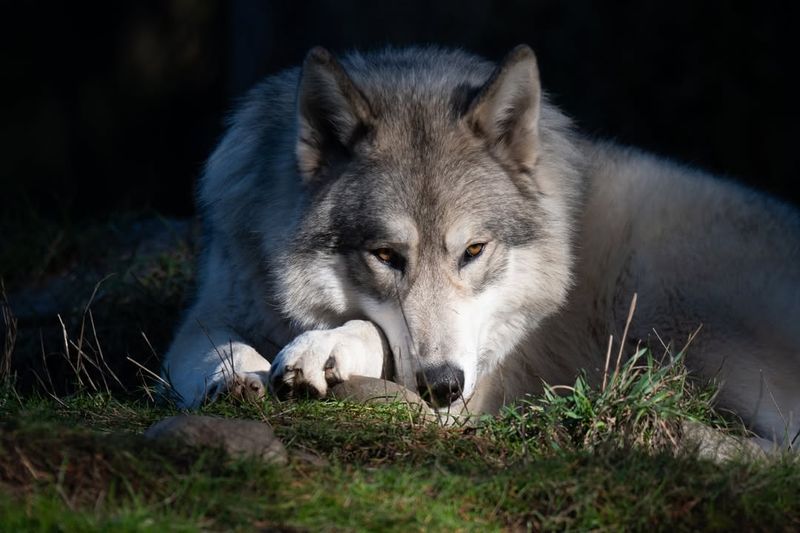
Montana, with its vast wilderness and rugged terrain, permits wolfdog ownership under certain restrictions. The state’s natural beauty provides a fitting backdrop for these animals, aligning with their instinctual love for exploration.
Owners must comply with Montana’s regulations, which may involve permits or specific containment measures. This ensures the well-being of both the wolfdogs and the local wildlife, maintaining a balanced coexistence.
The cool climate and mountainous regions of Montana offer wolfdogs the perfect environment to thrive. Potential owners must be committed to understanding their pets’ unique needs and providing the necessary care and enrichment.
21. Nebraska
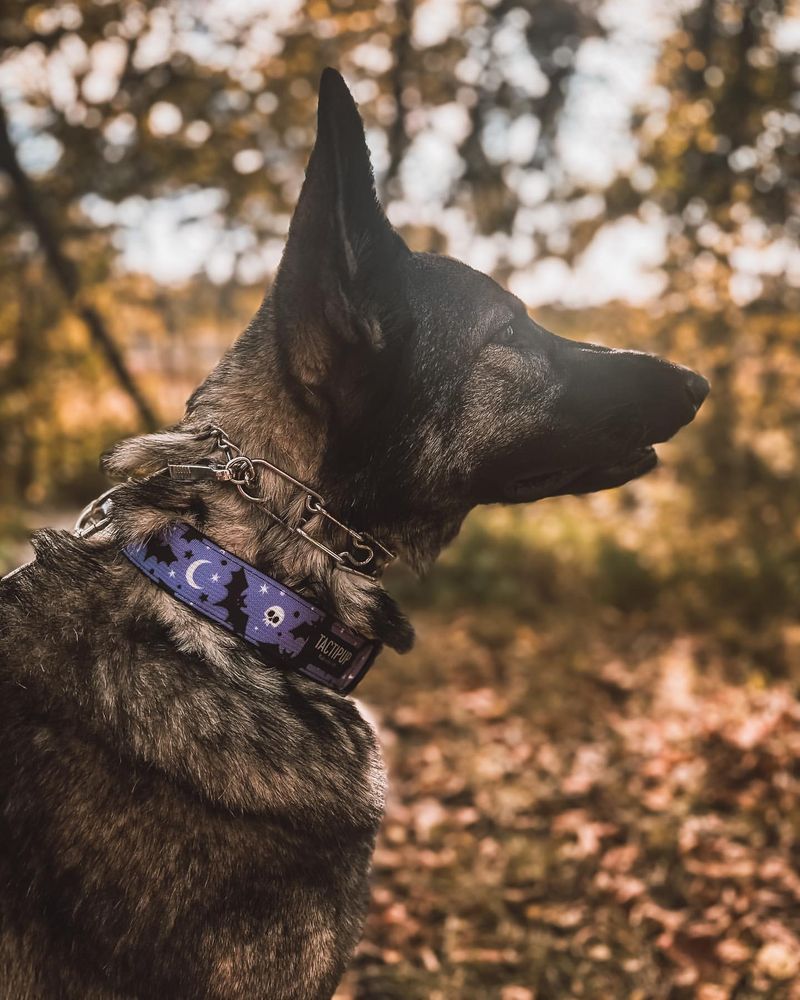
In Nebraska, wolfdog ownership is permitted, but specific regulations must be followed. This state’s agricultural landscape provides ample space for these animals to roam, making it an appealing option for prospective owners.
Compliance with local laws, which may include permits or containment measures, is crucial for maintaining the safety of both the community and the wolfdogs. Responsible ownership involves understanding these regulations and ensuring the animals’ well-being.
The mild climate and open fields of Nebraska are generally favorable for wolfdogs, offering them opportunities for exploration and exercise. With dedication and care, wolfdogs can be a rewarding pet choice in this state.
22. Nevada
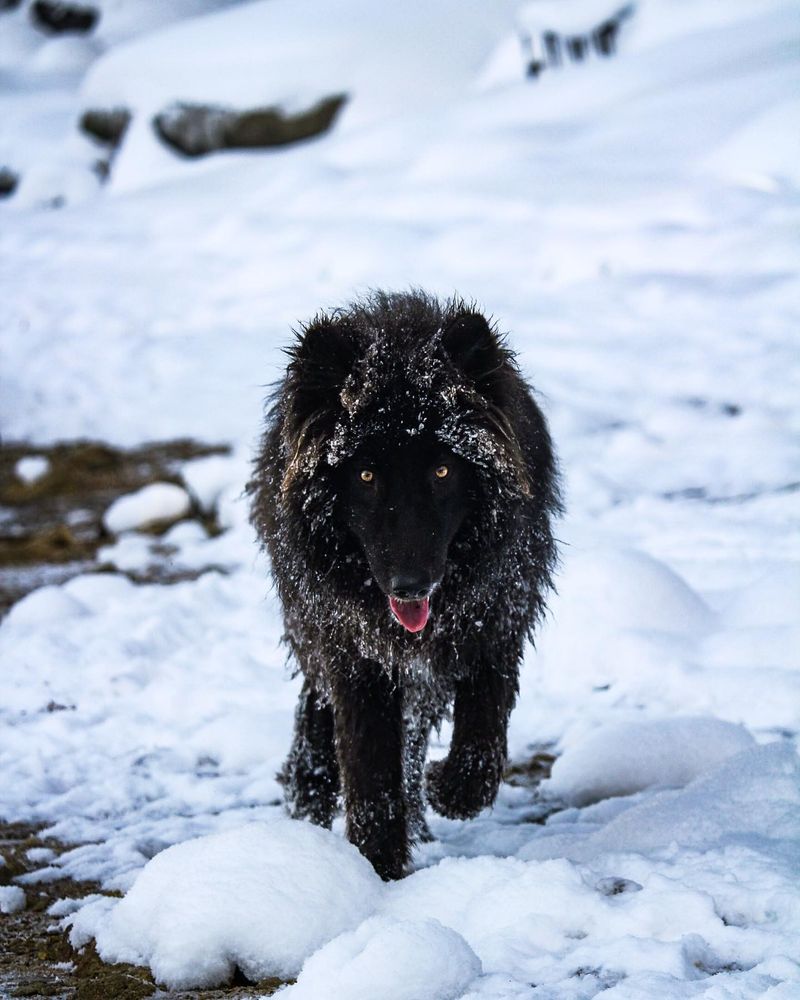
Nevada allows wolfdog ownership, subject to specific regulations. The state’s diverse environments, from deserts to mountains, provide a unique setting for these animals, offering them challenges and opportunities.
Owners must adhere to local laws, which may require permits or secure enclosures to ensure the safety of both the wolfdogs and the community. This responsibility is key to fostering a harmonious relationship between the animals and their surroundings.
The arid climate of Nevada necessitates additional considerations for hydration and shelter, but with proper care, wolfdogs can thrive in this distinctive state. Prospective owners must be committed to understanding and meeting their pets’ unique needs.
23. New Mexico
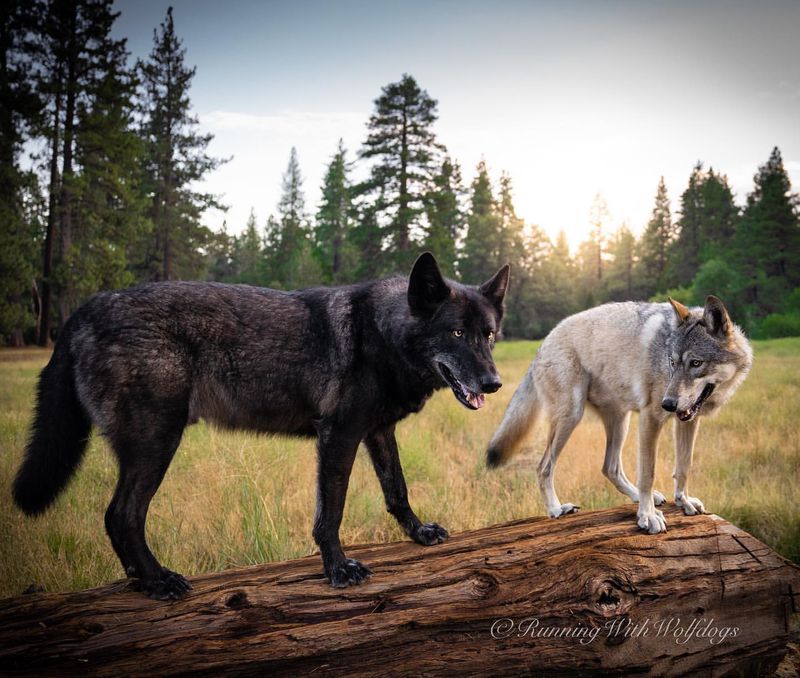
New Mexico permits wolfdog ownership, provided specific regulations are followed. The state’s unique landscapes, including deserts and mountains, offer a fascinating environment for these animals.
Owners must comply with New Mexico’s laws, which may involve permits or containment measures to ensure the well-being of both the wolfdogs and the community. Responsible ownership is crucial in maintaining harmony between the animals and their surroundings.
The dry climate and diverse landscapes of New Mexico require additional considerations for hydration and shelter, but with the right care and attention, wolfdogs can thrive in this southwestern state.
24. North Carolina
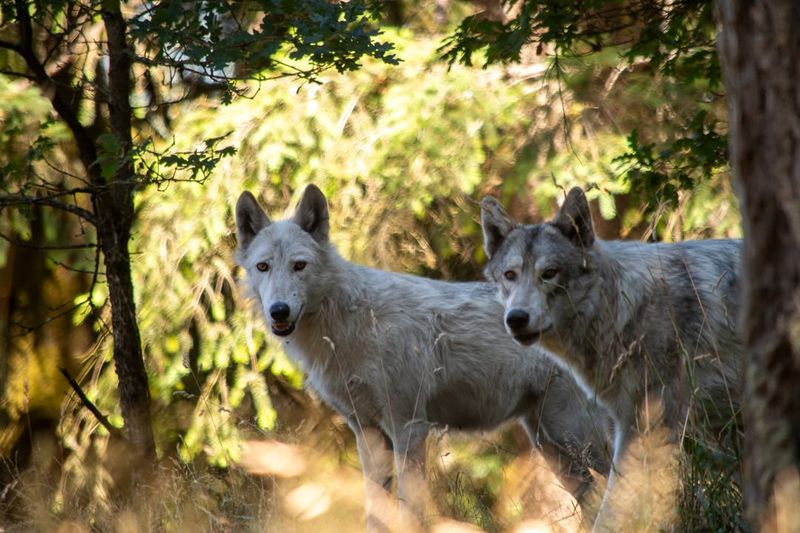
North Carolina allows wolfdog ownership, subject to specific regulations. The state’s diverse landscapes, from mountains to beaches, provide a variety of environments for these animals to explore.
Compliance with local laws, which may require permits or containment measures, is crucial for maintaining harmony between wolfdogs and the community. Responsible ownership involves understanding these regulations and ensuring the animals’ well-being.
The moderate climate and scenic beauty of North Carolina offer wolfdogs the perfect environment to thrive. Prospective owners must be prepared to meet their pets’ unique needs, including exercise, socialization, and proper care.
25. North Dakota
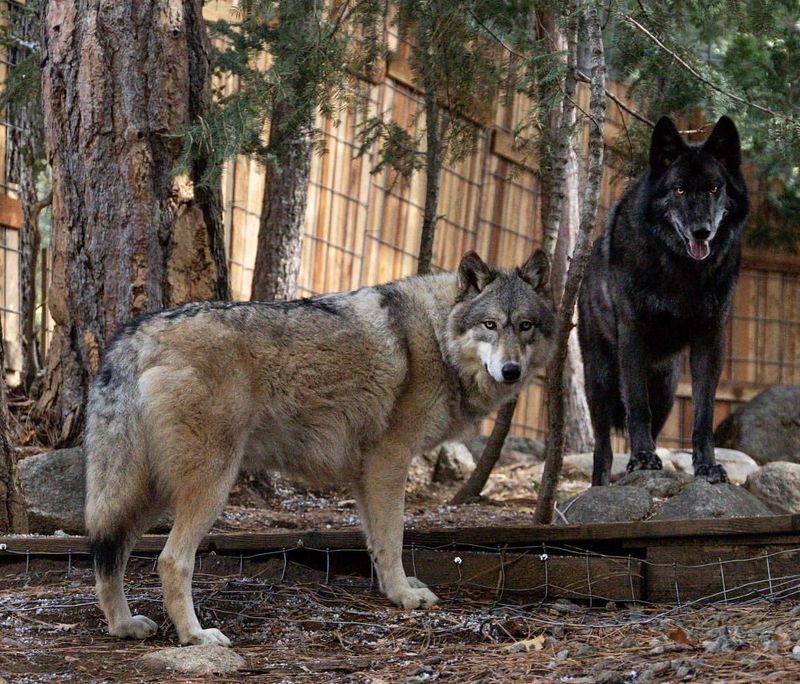
North Dakota permits wolfdog ownership, but with specific restrictions. The state’s wide open spaces and agricultural landscape provide an ideal setting for these animals, offering them room to roam.
Owners must adhere to local laws, which may include obtaining permits and ensuring secure enclosures. This responsibility is essential for maintaining the safety and well-being of both the wolfdogs and the community.
The cold climate and expansive landscapes of North Dakota offer wolfdogs the perfect conditions to thrive, provided they receive the proper care and attention. Prospective owners must be committed to understanding their pets’ unique needs and providing the necessary enrichment.
26. Ohio

In Ohio, the ownership of wolfdogs is subject to county-specific regulations, with some areas imposing stricter controls than others. The state’s diverse landscapes, from forests to farmlands, offer a variety of environments for these animals to explore.
Compliance with local laws, which may require permits or containment measures, is crucial for maintaining harmony between wolfdogs and the community. Responsible ownership involves understanding these regulations and ensuring the animals’ well-being.
The moderate climate of Ohio is generally favorable for wolfdogs, but owners must be vigilant in meeting their pets’ needs, including exercise and socialization. With the right care and commitment, wolfdogs can thrive in this Midwestern state.
27. Oklahoma
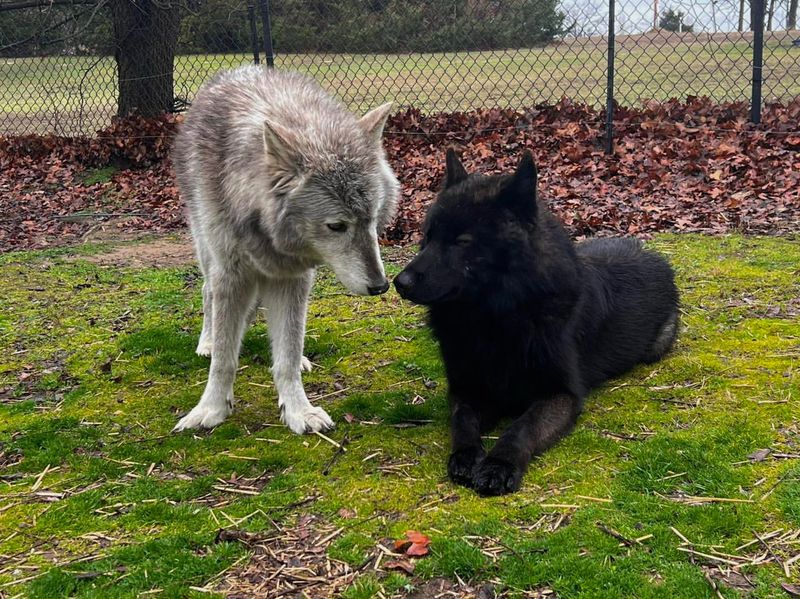
Oklahoma allows wolfdog ownership, subject to specific regulations. The state’s diverse landscapes, from prairies to forests, offer a suitable environment for these animals, providing them with plenty of room to explore.
Owners must adhere to local laws, which may require permits or secure enclosures to ensure the safety of both the wolfdogs and the community. This responsibility is key to fostering a harmonious relationship between the animals and their surroundings.
The moderate climate of Oklahoma is generally favorable for wolfdogs, but prospective owners must be prepared to meet their pets’ unique needs, including exercise, socialization, and proper care.
28. Oregon
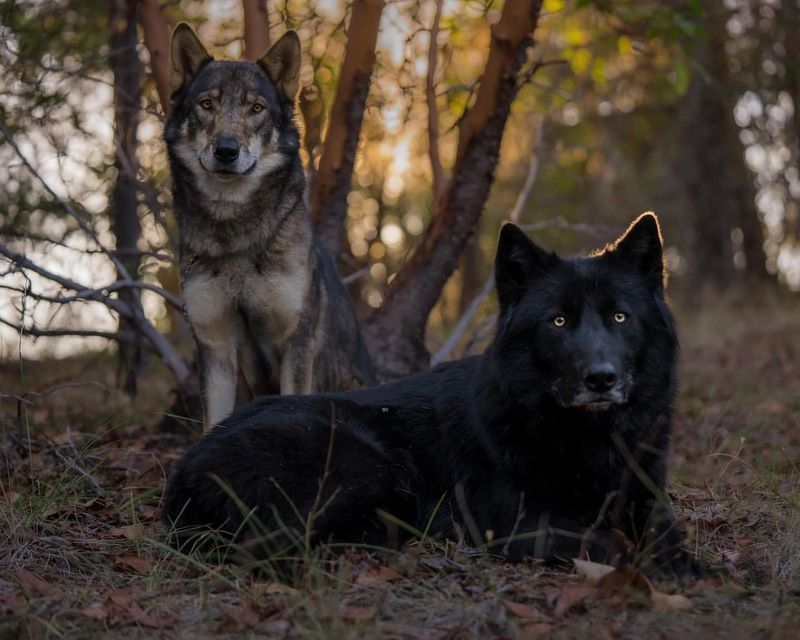
In Oregon, wolfdog ownership is subject to county-specific regulations, with some areas imposing stricter controls than others. The state’s diverse landscapes, from coastlines to forests, provide a variety of environments for these animals to explore.
Compliance with local laws, which may require permits or containment measures, is crucial for maintaining harmony between wolfdogs and the community. Responsible ownership involves understanding these regulations and ensuring the animals’ well-being.
The moderate climate of Oregon is generally favorable for wolfdogs, but owners must be vigilant in meeting their pets’ needs, including exercise and socialization. With the right care and commitment, wolfdogs can thrive in this Pacific Northwest state.
29. Pennsylvania

Pennsylvania allows wolfdog ownership, though regulations vary by county. This state offers a mix of natural beauty and urban areas, giving wolfdogs diverse environments to roam and explore.
Owners must adhere to local laws, which may involve obtaining permits and ensuring secure enclosures for their pets. This responsibility helps maintain public safety and the welfare of the animals.
The varied climate and scenic landscapes of Pennsylvania can be suitable for wolfdogs, provided they receive the proper care and attention. Prospective owners must be prepared to invest time and resources into understanding and meeting their pets’ unique needs.
30. South Carolina
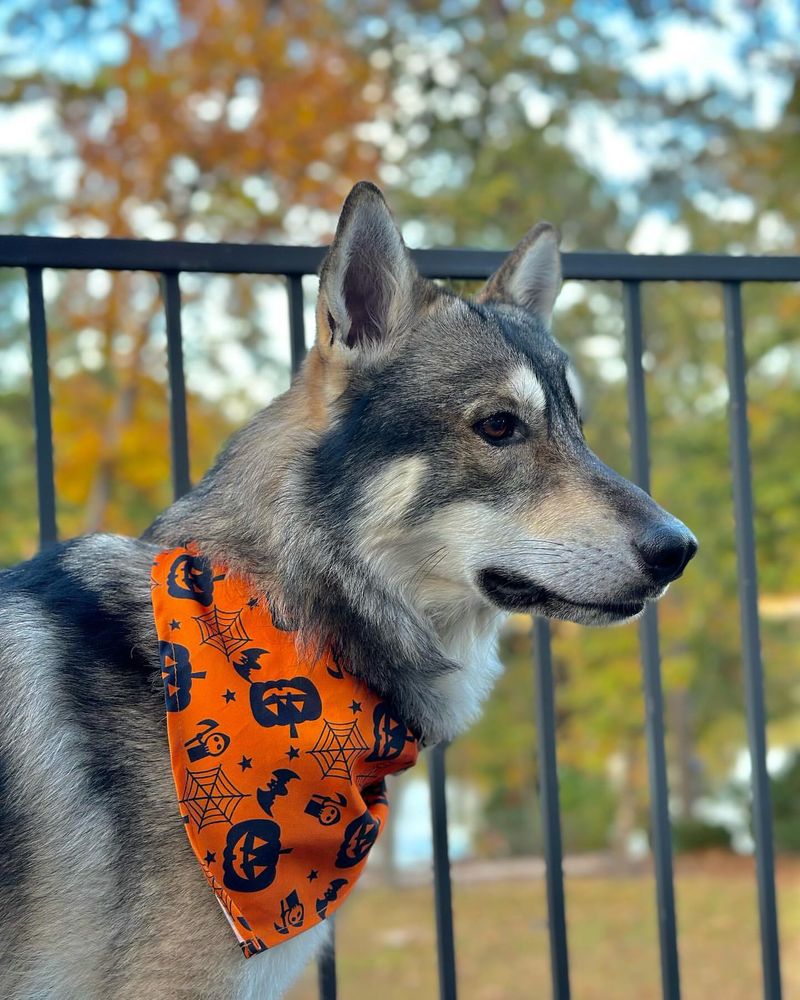
South Carolina permits wolfdog ownership, provided specific regulations are followed. The state’s coastal beauty and mild climate offer a unique setting for these animals, though it also presents certain challenges.
Owners must comply with South Carolina’s laws, which may involve permits or containment measures to ensure the well-being of both the wolfdogs and the community. Responsible ownership is crucial in maintaining harmony between the animals and their surroundings.
The mild climate and diverse landscapes of South Carolina require additional considerations for hydration and shelter, but with the right care and attention, wolfdogs can thrive in this southeastern state.
31. South Dakota
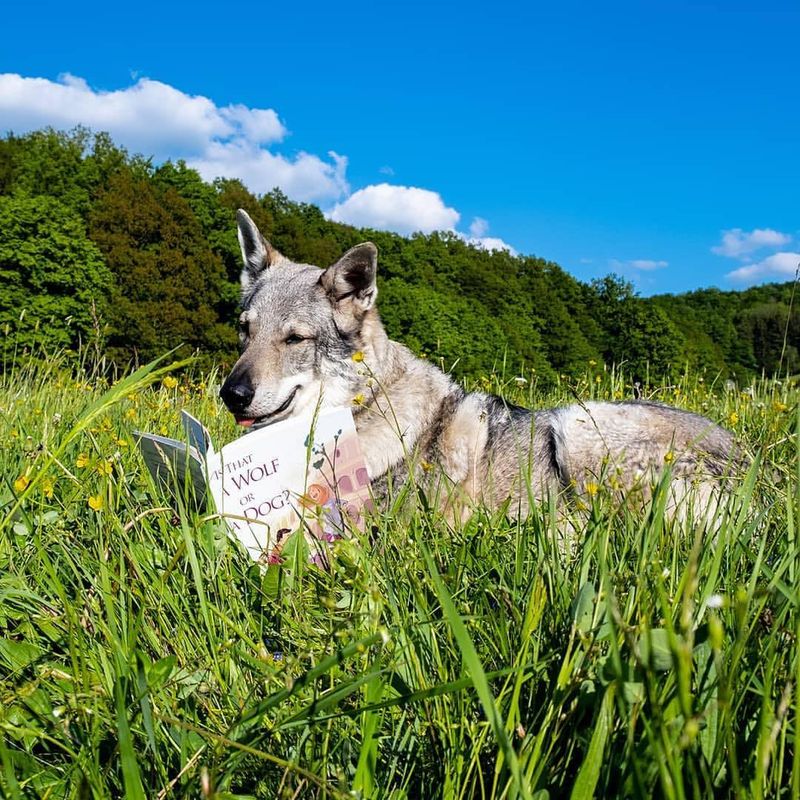
In South Dakota, wolfdog ownership is permitted, but specific regulations must be followed. This state’s wide open spaces and agricultural landscape provide an ideal setting for these animals, offering them room to roam.
Compliance with local laws, which may include permits or containment measures, is crucial for maintaining the safety of both the community and the wolfdogs. Responsible ownership involves understanding these regulations and ensuring the animals’ well-being.
The cold climate and expansive landscapes of South Dakota offer wolfdogs the perfect conditions to thrive, provided they receive the proper care and attention. Prospective owners must be committed to understanding their pets’ unique needs and providing the necessary enrichment.
32. Tennessee

Tennessee allows wolfdog ownership, subject to specific regulations. The state’s diverse landscapes, from mountains to valleys, provide a variety of environments for these animals to explore.
Owners must adhere to local laws, which may require permits or secure enclosures to ensure the safety of both the wolfdogs and the community. This responsibility is key to fostering a harmonious relationship between the animals and their surroundings.
The moderate climate of Tennessee is generally favorable for wolfdogs, but prospective owners must be prepared to meet their pets’ unique needs, including exercise, socialization, and proper care.
33. Texas
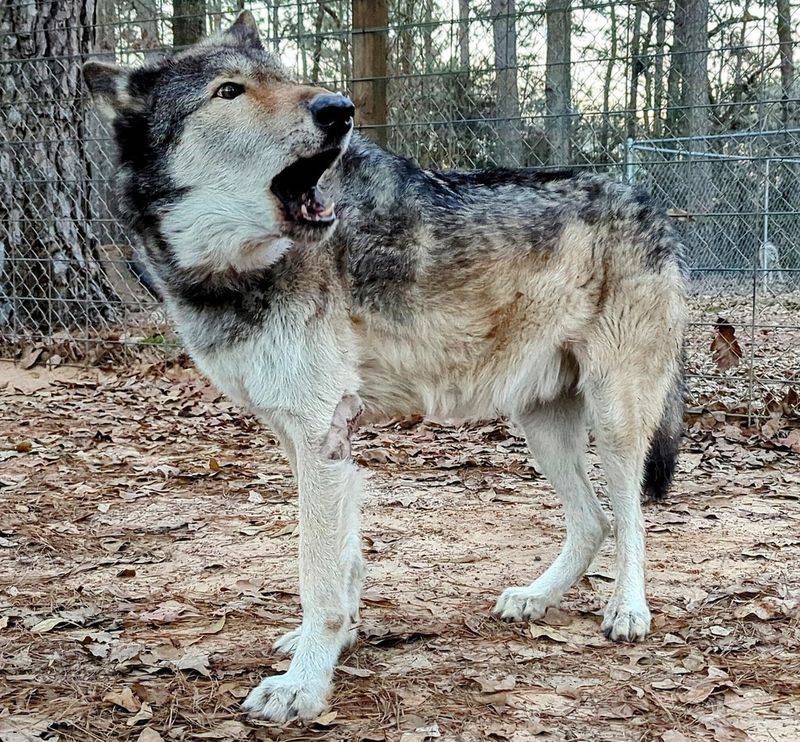
Texas permits wolfdog ownership, provided specific regulations are followed. The state’s vast landscapes, from plains to deserts, offer a fitting backdrop for these animals, aligning with their instinctual love for exploration.
Owners must comply with Texas laws, which may require permits or containment measures to ensure the well-being of both the wolfdogs and the community. Responsible ownership is crucial in maintaining harmony between the animals and their surroundings.
The varied climate and expansive terrain of Texas offer wolfdogs the perfect conditions to thrive, provided they receive the proper care and attention. Prospective owners must be committed to understanding their pets’ unique needs and providing the necessary enrichment.
34. Utah
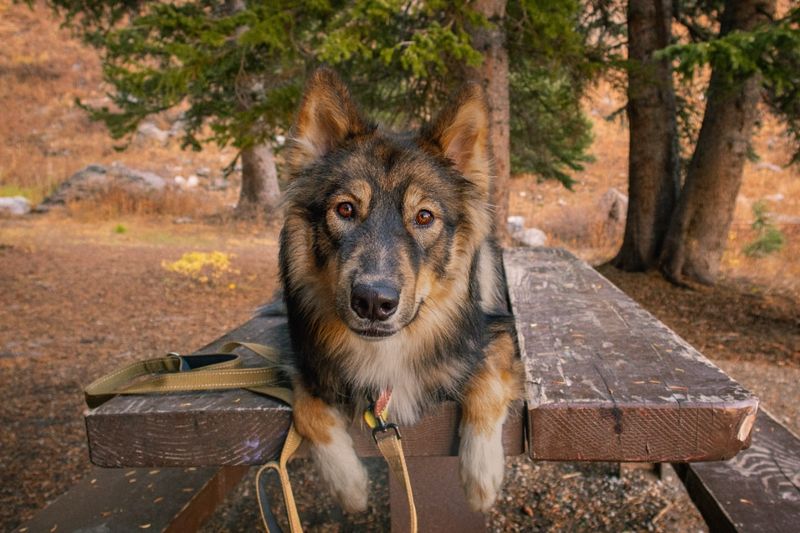
In Utah, wolfdog ownership is permitted under specific conditions. The state’s unique landscapes, from deserts to mountains, offer a fascinating environment for these animals.
Owners must adhere to Utah’s laws, which may involve obtaining permits and ensuring secure enclosures. This responsibility is essential for maintaining the safety and well-being of both the wolfdogs and the community.
The dry climate and diverse landscapes of Utah require additional considerations for hydration and shelter, but with the right care and attention, wolfdogs can thrive in this western state.
35. Virginia

Virginia allows wolfdog ownership, though regulations vary by county. This state offers a mix of natural beauty and urban areas, giving wolfdogs diverse environments to roam and explore.
Owners must adhere to local laws, which may involve obtaining permits and ensuring secure enclosures for their pets. This responsibility helps maintain public safety and the welfare of the animals.
The varied climate and scenic landscapes of Virginia can be suitable for wolfdogs, provided they receive the proper care and attention. Prospective owners must be prepared to invest time and resources into understanding and meeting their pets’ unique needs.
36. Washington
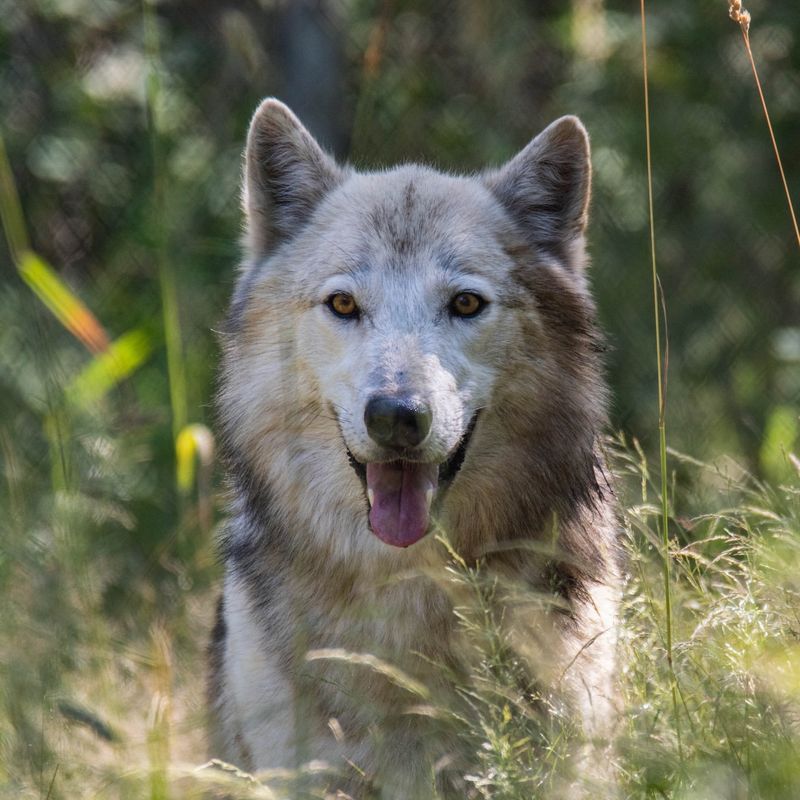
In Washington, wolfdog ownership is subject to county-specific regulations, with some areas imposing stricter controls than others. The state’s diverse landscapes, from coastlines to forests, provide a variety of environments for these animals to explore.
Compliance with local laws, which may require permits or containment measures, is crucial for maintaining harmony between wolfdogs and the community. Responsible ownership involves understanding these regulations and ensuring the animals’ well-being.
The moderate climate of Washington is generally favorable for wolfdogs, but owners must be vigilant in meeting their pets’ needs, including exercise and socialization. With the right care and commitment, wolfdogs can thrive in this Pacific Northwest state.
37. West Virginia
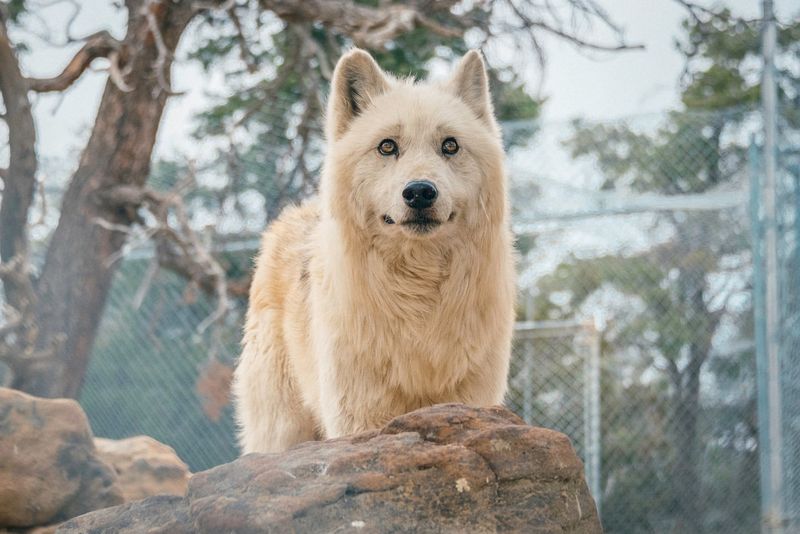
West Virginia permits wolfdog ownership, but with specific restrictions. The state’s mountainous terrain and lush forests provide an ideal setting for these animals, offering them room to explore.
Owners must adhere to local laws, which may include obtaining permits and ensuring secure enclosures. This responsibility is essential for maintaining the safety and well-being of both the wolfdogs and the community.
The varied climate and scenic beauty of West Virginia offer wolfdogs the perfect conditions to thrive, provided they receive the proper care and attention. Prospective owners must be committed to understanding their pets’ unique needs and providing the necessary enrichment.
38. Wisconsin

Wisconsin allows wolfdog ownership, though regulations vary by county. This state offers a mix of natural beauty and urban areas, giving wolfdogs diverse environments to roam and explore.
Owners must adhere to local laws, which may involve obtaining permits and ensuring secure enclosures for their pets. This responsibility helps maintain public safety and the welfare of the animals.
The cold climate and scenic landscapes of Wisconsin can be suitable for wolfdogs, provided they receive the proper care and attention. Prospective owners must be prepared to invest time and resources into understanding and meeting their pets’ unique needs.
39. Wyoming
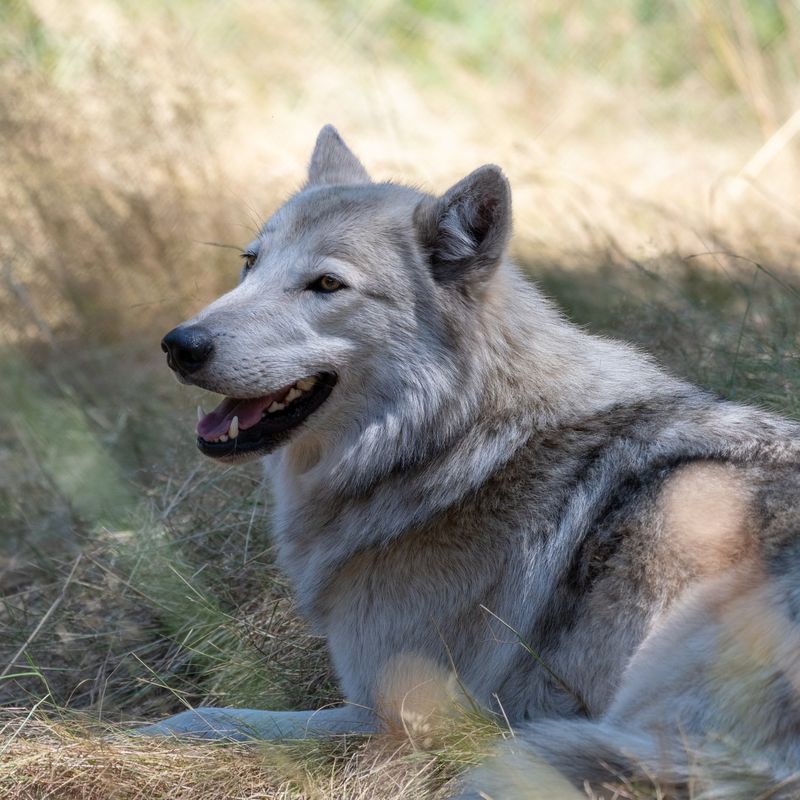
Wyoming permits wolfdog ownership, provided specific regulations are followed. The state’s vast open spaces and rugged landscapes offer a fitting backdrop for these animals, aligning with their instinctual love for exploration.
Owners must comply with Wyoming’s laws, which may require permits or containment measures to ensure the well-being of both the wolfdogs and the community. Responsible ownership is crucial in maintaining harmony between the animals and their surroundings.
The cool climate and expansive terrain of Wyoming offer wolfdogs the perfect conditions to thrive, provided they receive the proper care and attention. Prospective owners must be committed to understanding their pets’ unique needs and providing the necessary enrichment.

